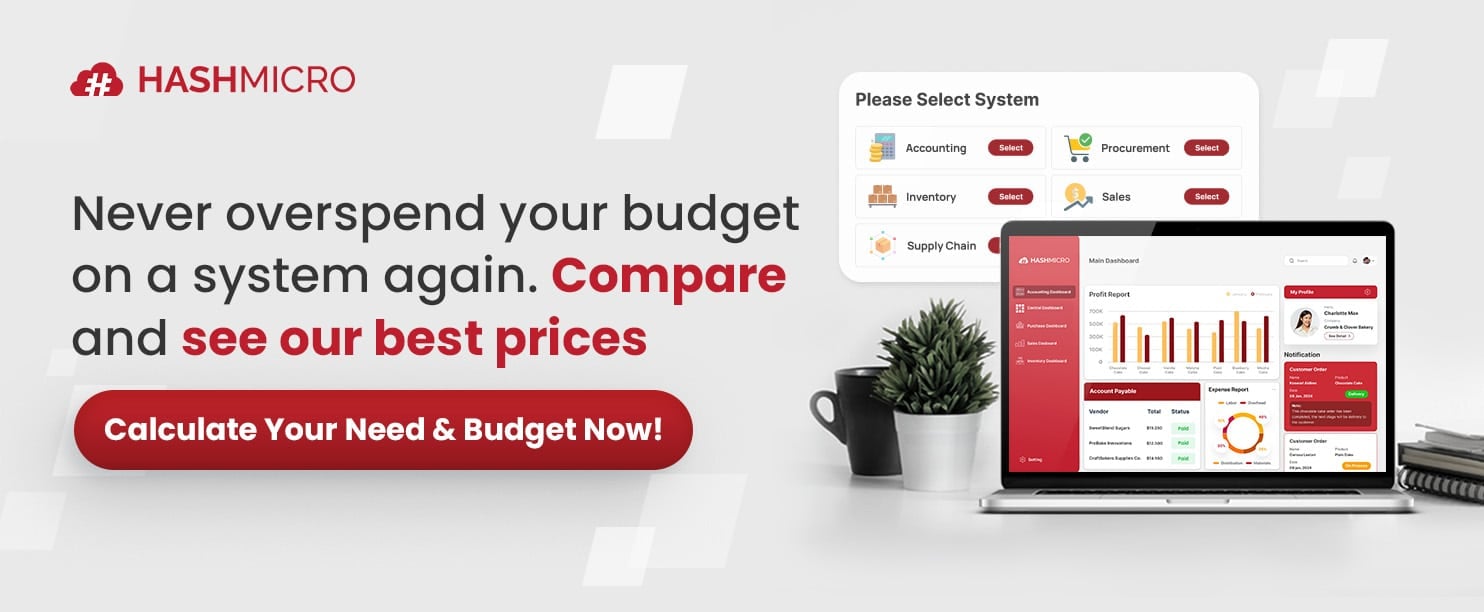Running a business without supply chain management software in Malaysia poses significant risks. Chronic stockouts, rising operational costs, and quality inconsistencies can disrupt operations and weaken customer trust.
A McKinsey survey found that 45% of business leaders lack visibility beyond their first-tier suppliers, leading to inefficiencies and unexpected disruptions.
Without a logistics management system, companies face issues like poor inventory control, supplier miscommunication, and delays, impacting profitability. Automating supply chain processes reduces errors, optimizes inventory, and improves decision-making with real-time data.
Importantly, this article will present the top 10 SCM software solutions available in Malaysia. So, whether you’re a manager or CEO of a large company in Malaysia, these tools can streamline supply chain operations, enhance visibility, and ensure your business meets customer expectations efficiently.
Key Takeaways
|
Table of Content
Content Lists

What is Supply Chain Management Software?
Supply Chain Management (SCM) software is a centralized digital solution designed to optimize, automate, and monitor the movement of goods, information, and finances across the supply chain. It integrates procurement, production, inventory management, warehousing, and distribution, ensuring seamless operations from supplier to customer.
By providing real-time data and analytics, SCM software enhances visibility, coordination, and efficiency in managing resources, improving decision-making, and reducing operational risks. Businesses can predict demand, minimize stock issues, and streamline logistics, leading to faster deliveries and cost savings.
Benefits of Supply Chain Management Software
Supply Chain Management software simplifies processes and helps businesses make better decisions by providing real-time data and analytics throughout the supply chain. For businesses in Malaysia, using Supply Chain Management software brings many benefits, including:
- Enhanced efficiency: By automating key supply chain tasks, businesses can reduce manual errors and increase operational speed.
- Cost reduction: SCM software helps in identifying cost-saving opportunities by optimizing inventory levels and reducing excess or obsolete stock.
- Improved supplier relationships: Effective management of supplier data and interactions leads to stronger, more reliable partnerships.
- Better customer satisfaction: With improved inventory management and faster delivery times, businesses can meet customer demands more accurately and promptly.
- Increased flexibility: The ability to quickly adapt to market changes or disruptions is enhanced, keeping businesses competitive in dynamic environments.
10 Best Supply Chain Management Software for Malaysian Businesses
The wide options of SCM vendors in Malaysia can potentially make you confused about choosing the best one among them. Here’s a shortlist of the 10 best SCM vendors, all known for their reliable quality.
Choosing the right supply chain management software for your Malaysian business can be challenging, given the many available options. Here’s a comprehensive list of the 10 best SCM systems in Malaysia, with an in-depth analysis of each solution’s strengths and weaknesses.
1. HashMicro 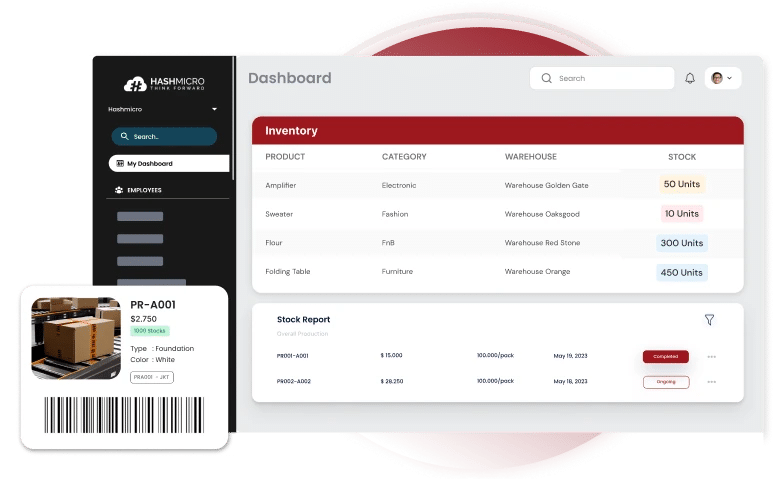
HashMicro’s Supply Chain Software is well recognized as the best supply chain system in Southeast Asia. First established in Singapore, HashMicro has a professional track record as a competent vendor. HashMicro’s SCM software is well-suited for large enterprises looking to streamline their business processes.
Changi Airport, Bank of China, Hino, and Brinks are just a few of HashMicro’s clients that have grown their businesses significantly. This is because HashMicro’s SCM system provides complete visibility and advanced analytics to plan, process, and deliver goods to customers.
Furthermore, HashMicro’s SCM is aligned with local guidelines in Malaysia, so you don’t have to worry about reports not optimized for use in Malaysia.
The key features from HashMicro’s SCM software that will robust your business are like:
- Inventory Management: Monitor inventory, track goods, and adjust to reduce risks and ensure smooth operations.
- Procurement Management: Get alerts when inventory hits minimum levels and automate purchase orders, keeping optimal stock.
- Shipment Management: Track couriers to ensure timely deliveries, improving customer satisfaction.
- Return Management: Streamline returns and improve customer satisfaction, fostering loyalty and trust.
- Planning and Forecasting: Predict demand and inventory needs with advanced analytics, minimizing stockouts or overstocking.
| Pros | Cons |
|
|
If you are interested in learning more about how HashMicro SCM Software can be tailored to meet your business’s needs, click on the banner below to view the pricing scheme.
2. Netsuite
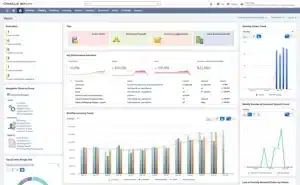
This system is a cloud-based solution designed to streamline supply chain operations across diverse industries. NetSuite stands out for its comprehensive functionality that supports real-time visibility and control over supply chain processes.
The core features of NetSuite include demand planning, procurement, and inventory management. This vendor improves customer service by ensuring timely delivery of products. It also provides detailed insights into stock levels and logistics.
| Pros | Cons |
|
|
3. Netstock
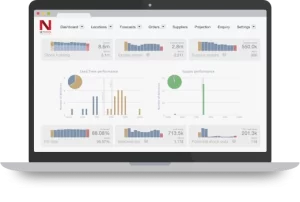
Netstock supply chain software is an innovative supply chain that caters to small and medium-sized businesses. Known for its straightforward and intuitive interface, Netstock SCM simplifies complex supply chain processes, making it accessible for users without deep technical expertise.
The primary features of Netstock SCM include demand forecasting, inventory health checkups, and replenishment recommendations. These tools are designed to enhance decision-making by providing analytics on inventory performance.
| Pros | Cons |
|
|
4. Microsoft Dynamics 365
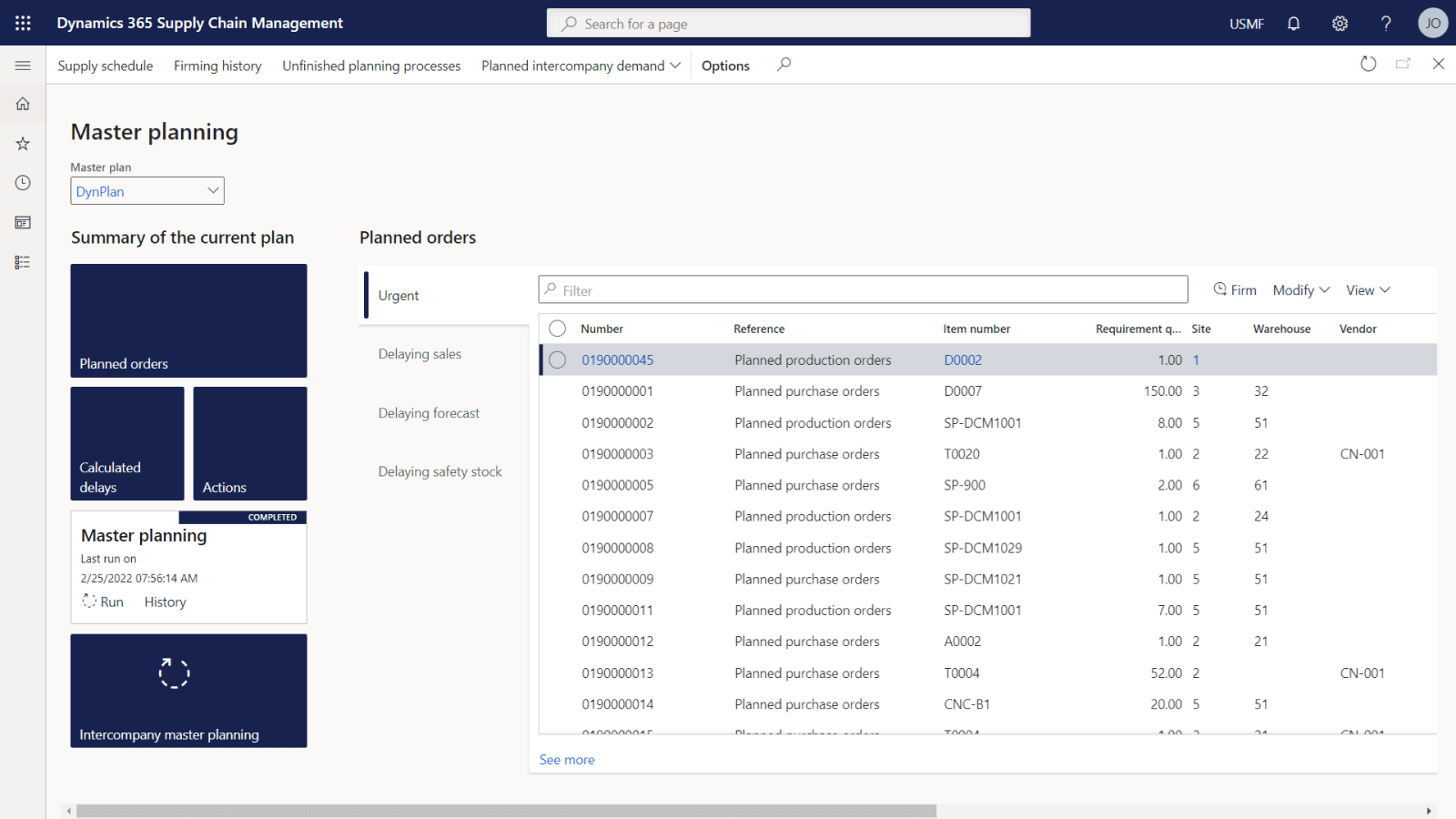 Microsoft Dynamics 365 supply chain software is an integrated solution designed to transform and streamline business supply chain operations. This platform leverages AI and data visualization to provide deep insights into every aspect of the supply chain.
Microsoft Dynamics 365 supply chain software is an integrated solution designed to transform and streamline business supply chain operations. This platform leverages AI and data visualization to provide deep insights into every aspect of the supply chain.
Key features of Microsoft Dynamics 365 include Inventory management and optimized planning. These features help organizations achieve greater operational efficiency, enhance production planning and scheduling, and ensure product quality and compliance.
| Pros | Cons |
|
|
5. Logiwa
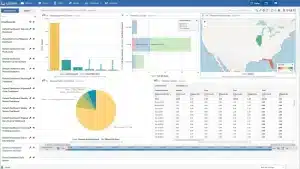
Logiwa supply chain managemenet software malaysia is a cloud-based inventory management solution specifically designed to meet the needs of high-volume B2C and D2C businesses. This platform excels in streamlining operations and optimizing inventory.
Key features of Logiwa include real-time inventory tracking and integrated shipping or order fulfillment. Additionally, its data-driven insights and analytics help businesses make informed decisions to further optimize their supply chain.
| Pros | Cons |
|
|
6. Focus Logistic
Focus supply chain management software is an integrated solution designed to cater to the diverse needs of modern supply chains. The system is developed to provide real-time insights and control, helping companies stay ahead in fast-paced market environments.
Key features of Focus SCM include comprehensive inventory management, efficient order processing, and streamlined logistics operations. Additionally, the software supports reporting and analytics by highlighting trends for improvement.
| Pros | Cons |
|
|
7. Precoro
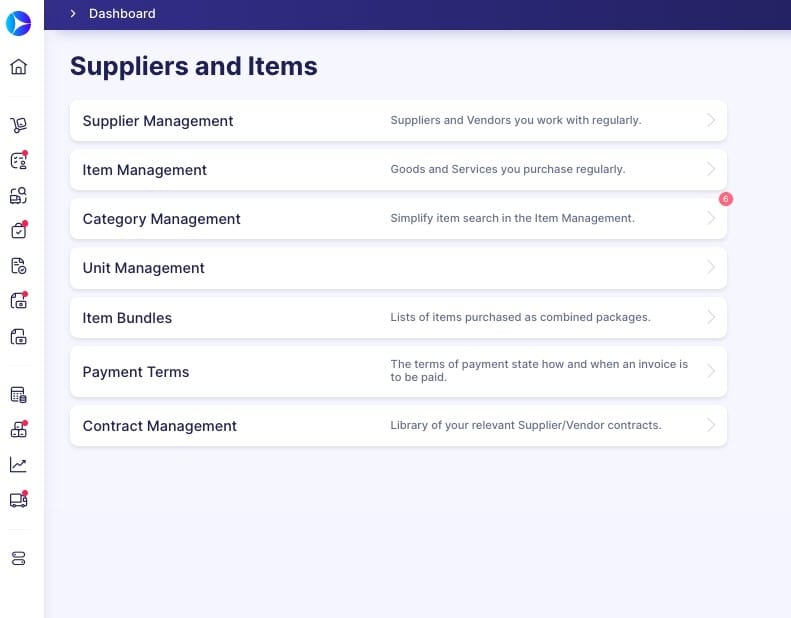 Precoro SCM offers an intuitive, user-friendly interface that simplifies complex procurement tasks, making it accessible for users without extensive technical knowledge. This software has robust spend management practices without complex systems.
Precoro SCM offers an intuitive, user-friendly interface that simplifies complex procurement tasks, making it accessible for users without extensive technical knowledge. This software has robust spend management practices without complex systems.
Key features of Precoro include automated purchase order creation, real-time budget tracking, and spend analytics. These capabilities enable businesses to control spending effectively, reduce procurement cycles, and enhance compliance with internal policies.
| Pros | Cons |
|
|
8. Magaya
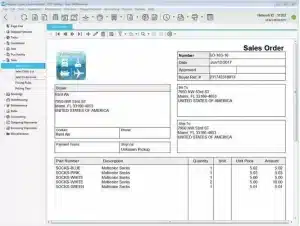
Magaya SCM is designed primarily for logistics providers, wholesalers, and distributors. This robust platform integrates key aspects of logistics and supply chain operations into a single suite to optimize efficiency and improve visibility across the entire supply chain.
Magaya’s key features include cargo management and supply chain visibility. The software provides comprehensive visibility, offering detailed tracking and reporting features that help businesses monitor shipments in real-time.
| Pros | Cons |
|
|
9. SAP
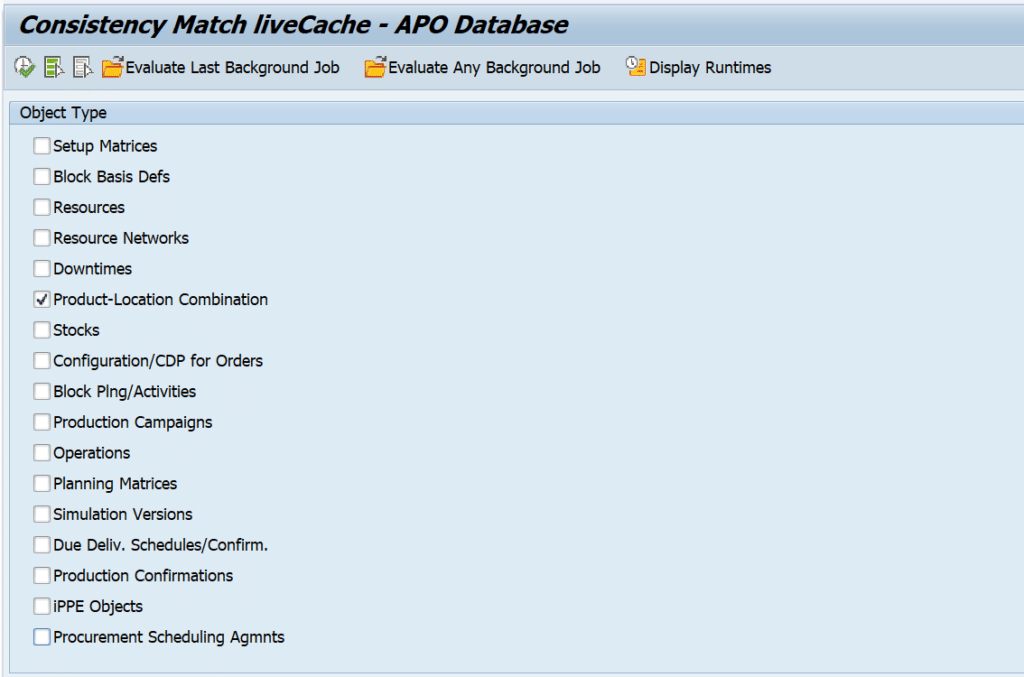 SAP SCM is a comprehensive suite designed to enhance the efficiency and visibility of supply chain processes in enterprises. Key features of SAP SCM include advanced planning and optimization (APO), warehouse management system (WMS), and transportation management.
SAP SCM is a comprehensive suite designed to enhance the efficiency and visibility of supply chain processes in enterprises. Key features of SAP SCM include advanced planning and optimization (APO), warehouse management system (WMS), and transportation management.
| Pros | Cons |
|
|
10. Shippabo
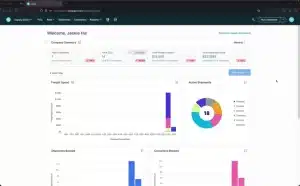
Shippabo integrates ocean, air, and domestic freight solutions with powerful visibility and coordination tools. This platform aims to demystify the complexities of shipping logistics and make global trade more accessible and manageable for its users.
Key features of Shippabo SCM include real-time shipment tracking, inventory management, warehouse management system, and freight rate comparison. Furthermore, the software facilitates better communication and collaboration between all parties involved in the supply chain.
| Pros | Cons |
|
|
Choose the Right SCM Software for Your Business in Malaysia
 In Malaysia, where the market is highly competitive, finding a SCM system that fits your specific needs can be challenging. This guide aims to simplify the process, providing you with key considerations and practical tips to help you select the best supply chain management solution tailored to your business.
In Malaysia, where the market is highly competitive, finding a SCM system that fits your specific needs can be challenging. This guide aims to simplify the process, providing you with key considerations and practical tips to help you select the best supply chain management solution tailored to your business.
Understanding your business needs
Evaluate your business size, the complexity of your supply chain, and the key challenges you face. Pinpointing your pain points will guide you toward a SCM system solution that best fits your business landscape.
Evaluate the features
An effective SCM software should offer real-time tracking, inventory optimization, demand forecasting, and seamless integration with other tools you currently use. Ensure the solutions you consider have robust analytics capabilities to help you improve operational efficiency.
Consider scalability and support
Your chosen SCM system should not only fit your current needs but also grow with your business. Check how scalable the system is and whether the provider offers support for upgrades and expansions. Additionally, assess the level of customer support provided, as reliable support is crucial for resolving any future issues swiftly.
Read reviews and seek recommendations
Look for testimonials from other large businesses in Malaysia, and consider reaching out to your industry peers for their recommendations. Their insights can prevent you from making costly mistakes and help you choose a system that has proven successful in similar business environments.
Conclusion
Selecting the right Supply Chain Management (SCM) software is pivotal for Malaysian businesses striving for operational excellence and customer satisfaction. While all these solutions offer significant benefits, HashMicro’s SCM software stands out as the best choice.
With comprehensive integration, advanced analytics, and customization tailored to Malaysian regulations, HashMicro ensures your supply chain operations run smoothly and efficiently.
You can also try HashMicro’s free demo to discover how it can improve your business efficiency. As you evaluate your options, consider the unmatched benefits HashMicro offers, making it the superior choice for your business needs in Malaysia.
FAQ about SCM Software Malaysia
-
What is SCM software used for?
SCM (Supply Chain Management) software is used to enhance the efficiency of supply chains by managing the flow of goods, information, and finances. It supports businesses in optimizing inventory, planning production, coordinating suppliers, and fulfilling orders, reducing costs and improving overall operations.
-
What are the four major types of SCM software?
SCM software typically includes tools for supply chain planning to forecast and schedule activities, supply chain execution for logistics and transportation, procurement for managing suppliers and sourcing, and inventory management for tracking and maintaining optimal stock levels.
-
Is SCM an ERP system?
SCM is not an ERP system, but it is often part of one. SCM focuses on managing supply chain activities like procurement and logistics, while ERP handles multiple business functions, including SCM, finance, and HR, in one system. Together, they work to streamline business operations.
-
Which tool is used for SCM?
SCM tools include platforms for supply chain planning, logistics management, inventory tracking, and procurement. These tools are designed to improve visibility, streamline processes, and enhance collaboration across the supply chain, catering to businesses of different sizes and complexities.






